Shortly after Russia's attack on Ukraine, discussions in Moscow began focusing on the notion that the absence of a state ideology was a significant hindrance to Russia. Both officials and the public were perceived as too cynical, with few genuinely believing what Putin was saying.
Over the past two years, propaganda has made significant efforts to change this situation. A new paradigm was developed: daily, television repeats that Russia is waging a holy war against Satanism and soullessness, that Russia is fighting against the West, which has betrayed its values, and that Russia is the last bastion of morality and Christianity.
These ideas are repeated so often that many officials have begun to believe in them or at least use them as guidance in their decision-making. A striking example was the scandal before New Year's: several Russian pop stars attended a private event called "Almost Naked Party"—resulting in several court cases and widespread condemnation.
Propagandists argued at the time that during wartime, public figures have no right to indulge in frivolous entertainment. My contacts in Moscow explained that among state ideologists, the idea of transforming Russia into something resembling an "Orthodox Iran" became popular—this construct seemed much more stable to many than the current atheist and Europeanized Russia.
It became noticeable that last year the Russian Orthodox Church began making bolder statements—Patriarch Kirill even proposed banning abortions at the end of the year. The church had never before made such polarizing proposals.
Several factors have hindered the transformation of Russia into a more conservative state. The main one is the corrupt hedonism of the ruling elite. The most influential people in the regime, including Vladimir Putin and his friends, still adhere to this lifestyle. This did not stop them from talking about a holy war and shifting the country onto a war footing.
However, after the presidential elections, it became clear that Putin is trying to re-educate his elite. Sincerely religious people start playing an increasingly prominent role in Russian politics.
The God Fearing Minister
The new Minister of Defense, Andrey Belousov, is a man who was almost unknown until recently, despite holding top positions in the state for the past ten years. He has been the Minister of Economy, a presidential advisor, and then the First Deputy Prime Minister. According to sources in Moscow, his appointment as Minister of Defense was a surprise even to him, but he accepted it with humility. The fact is that Belousov is a deeply religious man. He is sincerely devoted to Putin, considering serving him almost a religious duty.
Defence Minister Andrey Belousov
It is known that many officials over the past ten years have made a special effort to demonstrate their piety—it has been fashionable and popular. Moreover, it was believed that the church could be a convenient place for resolving issues—where one could meet the right person and hold informal talks (in the 90s, such conversations took place in banyas – traditional Russian bathhouses, but the new era brought new traditions). However, Andrey Belousov is not one of these—he is considered not to flaunt his faith, but to be quite sincere. Moreover, he has even participated in church ceremonies as an altar server—a layperson who assists the priest during the ritual and wears church vestments for this purpose.
On the right is Andrey Belousov
Last week, the independent Russian publication "Dossier" published several documents allegedly written by Belousov. Among them were his daily schedule and his set of life principles. The new Minister of Defense begins each day with a prayer (7.50 am to 8.00 am), and his mission is formulated as "seeking the Kingdom of God and God's Truth," as well as "carrying his cross" and "serving the Russian state."
This level of religiosity is undoubtedly a rare phenomenon for the Russian political elite—or rather, it was rare until recently.
The Brotherhood of Believers
Sergey Kiriyenko has held a key position in the presidential administration for eight years, overseeing domestic policy. Despite numerous rumors of a possible resignation, he has remained in office.
He has a long biography and a controversial reputation. He was the Prime Minister in 1998 under Boris Yeltsin and later led a liberal party. In those years, it was said that he was a Scientologist. However, in recent years, he has been diligently trying to shed that reputation: Putin's chief political strategist has to prove that he is a true Orthodox Christian. To this end, Kiriyenko has been patronizing the Diveevo Monastery, located near Nizhny Novgorod, his hometown, for many years.
Diveevo Monastery is a unique place. On one hand, it is located close to Sarov—Russia's Los Alamos, a secret city where all the developers of Soviet nuclear weapons used to work. Before moving to the Kremlin, Kiriyenko headed Rosatom, the state monopoly in nuclear research. Therefore, Diveevo Monastery has always been considered special and somewhat elite, being so close to state secrets.
Moreover, this place is associated with the name of a particularly popular saint in Russia—Seraphim of Sarov. He lived in the 19th century and was canonized at the beginning of the 20th century. The last Empress of Russia, Alexandra Feodorovna, loved to pray to him (and naturally, Rasputin respected this saint). Somehow Seraphim of Sarov became a symbol of Russian nationalists and monarchists.
Kiriyenko (center) at the Diveevo Monastery
So, it is not surprising that Kiriyenko created something like a religious club around Diveevo Monastery. Prominent Russian officials and cultural figures often visit the monastery. They are called members of the “Diveevo Brotherhood.”
One of the most frequent visitors to the monastery is the new Minister of Defense, Andrey Belousov. Until recently, the Diveevo website stated that the largest donor to the monastery was Prime Minister Mikhail Mishustin. By the way, Putin himself visited Diveevo in September last year.
Putin at the Diveevo Monastery
Many ministers, oligarchs, and governors are part of the Diveevo Brotherhood, with even more aspiring to join. Moreover, Kiriyenko oversees the Kremlin's personnel policy—effectively choosing the governors of Russian regions and shaping the future political elite of the country. Over the past few years, Kiriyenko has nurtured a new generation of regional officials. Upon joining the Kremlin, he created the so-called "governor school"—an actual training center for preparing and ideologically processing regional elites. Currently, most Russian governors are under 60, selected and appointed by Sergey Kiriyenko. Obviously, most of them are true believers.
Another person connected with Diveevo is the famous Russian film director Nikita Mikhalkov, an Oscar winner in 1993 for Best Foreign Language Film and now one of Russia's most aggressive propagandists. My sources laugh as they tell me that he even bought a house near the monastery because Seraphim of Sarov supposedly said that during the Apocalypse, those near Diveevo would be saved.
The Former Confessor
However, the most influential clergyman in Russia is Tikhon Shevkunov. He previously headed the Sretensky Monastery in Moscow, located near Lubyanka, the headquarters of the FSB. It was there that he met all the most influential Russian security officials. According to numerous sources, Tikhon Shevkunov was Putin's personal confessor for several years. Now, however, he has been promoted—he is currently the Metropolitan of Crimea and is considered the main contender for the position of Patriarch if anything happens to the current one, Kirill.
Father Tikhon is not just a church figure but also one of the main ideologists of the regime, a popular writer, and a documentary filmmaker. Back in the 2000s, he made the film “The Fall of an Empire. The Byzantine Lesson.” In 2008, it was shown in prime time on state television—in this film, Father Tikhon explained that the West has always been hostile to Orthodox civilization, the West destroyed the great Orthodox Byzantine Empire, and now it is trying to destroy Russia for the same reasons.
Such a conspiratorial approach was not yet mainstream in the Russian political elite. However, Shevkunov was close to President Putin and had a noticeable ideological influence on him. Over the past 20 years, this direction shaped the worldview of the formerly Western-oriented Putin. Therefore, there is no doubt that Shevkunov significantly pushed Putin towards war, convincing him that the West would always be hostile to Russia and must be fought by any means.
Father Tikhon Shevkunov and Putin (Sign above: "Entrance to the church by invitation only")
In the following decades, Metropolitan Tikhon had to step back into the shadows, but he became one of the official historiographers of Putin's Russia. He was tasked with creating modern interactive museums across the country called "Russia. My History"—these are more like propaganda exhibitions than historical museums, portraying Putin as the continuer of the great Russian tsars, a unifier of lands, and the leader of the entire Orthodox civilization.
Last year, Tikhon gave a programmatic interview in which he stated that Russia is not at war with Ukraine, but with "wild, terrible, infernal fascism," controlled not by the USA, but by a secret world government (“supranational forces that influence even such powerful people as the President of the United States”).
Faith in Stalin
Another new face in the presidential administration is Elena Yampolskaya, the former head of the parliamentary committee on culture, now appointed as Putin’s advisor on cultural affairs.
Yampolskaya was a journalist and theater critic in the past, but her remarkable political career began when she worked as a literary editor on Tikhon Shevkunov's book "Everyday Saints," when he was still the abbot of the Sretensky Monastery. She herself recounted that she once went to Shevkunov for confession at the Sretensky Monastery, and he, knowing her as a well-known journalist, asked her for advice: to find him a literary editor. "An excellent literary editor is sitting in front of you," Yampolskaya responded without hesitation.
Working with Shevkunov was successful for her—the book became a bestseller. Later, the journalist herself became the editor-in-chief of the newspaper "Kultura," and then a member of the Russian parliament from the ruling party "United Russia."
Putin’s new advisor Elena Yampolskaya and Oscar-winning filmmaker Nikita Mikhailkov
Yampolskaya has always emphasized that she is a deeply religious person. However, her orthodoxy is combined with uncompromising Stalinism. She has stated that "Two forces can keep Russia from the abyss: the first is God, the second is Stalin." She also wrote an article titled "It's Hard to Be a God," where she argued that Stalin "was sent to keep Russia on the world map."
Suslov Is Coming Back
Overall, Putin's bureaucracy has retained many characteristics of the Soviet era—the current staff of the presidential administration even work in the same building on Staraya Square in Moscow where the functionaries of the Central Committee of the Communist Party of the Soviet Union worked forty years ago. However, there was one significant difference: none of the party leaders of the Soviet years were millionaires, none of them owned—or even dreamed of owning—a yacht and a palace. Many of them were sincerely devout—not in God, but in Lenin and the idea of communism.
There is a classic story about Leonid Brezhnev, who in 1972 made an official visit to the USA to meet Richard Nixon, and Nixon gifted him a car—a silver Lincoln. When Brezhnev flew back, he was met at the airport by members of the Politburo, as was the tradition. The party ideologist, the second secretary of the Central Committee, Mikhail Suslov, sternly asked him: "I hope you haven’t stopped being a communist?" From the perspective of the austere Suslov, accepting such a gift was an unacceptable luxury.
Suslov and Brezhnev
It has always been amusing to recall such stories and compare them to Putin’s current inner circle. For many years, Russia could rightfully be considered the most cynical country in the world. Russian officials could talk endlessly about traditional values, faith in God, or patriotism, yet this did not prevent them from stealing, buying real estate in Europe, and sending their children to Western universities.
But now, everything seems to be slowly changing. Everyone sees that Putin is promoting deeply religious people, who are reputed to be almost religious fanatics. This does not mean they are poor and ascetic like the Soviet gray cardinal Suslov once was. However, there is no doubt that their decisions are guided not only by considerations of personal gain and cold calculation but also by certain values. At the core of these values are Orthodox faith and the idea of serving the state and the president.
The Kremlin's new personnel policy suggests that the dream of an "Orthodox Iran" has already tempted Putin. He clearly prefers to have officials around him who regard him as a gift from God and treat him with religious reverence. However, Russia is still a long way from becoming a true theocracy—all that is needed is to instill faith in God among the population. According to all polls, less than one percent of the population attends church at least once a week. Therefore, while there may be many officials and politicians in Russia like Belousov or Yampolskaya, there are very few voters who share their values.




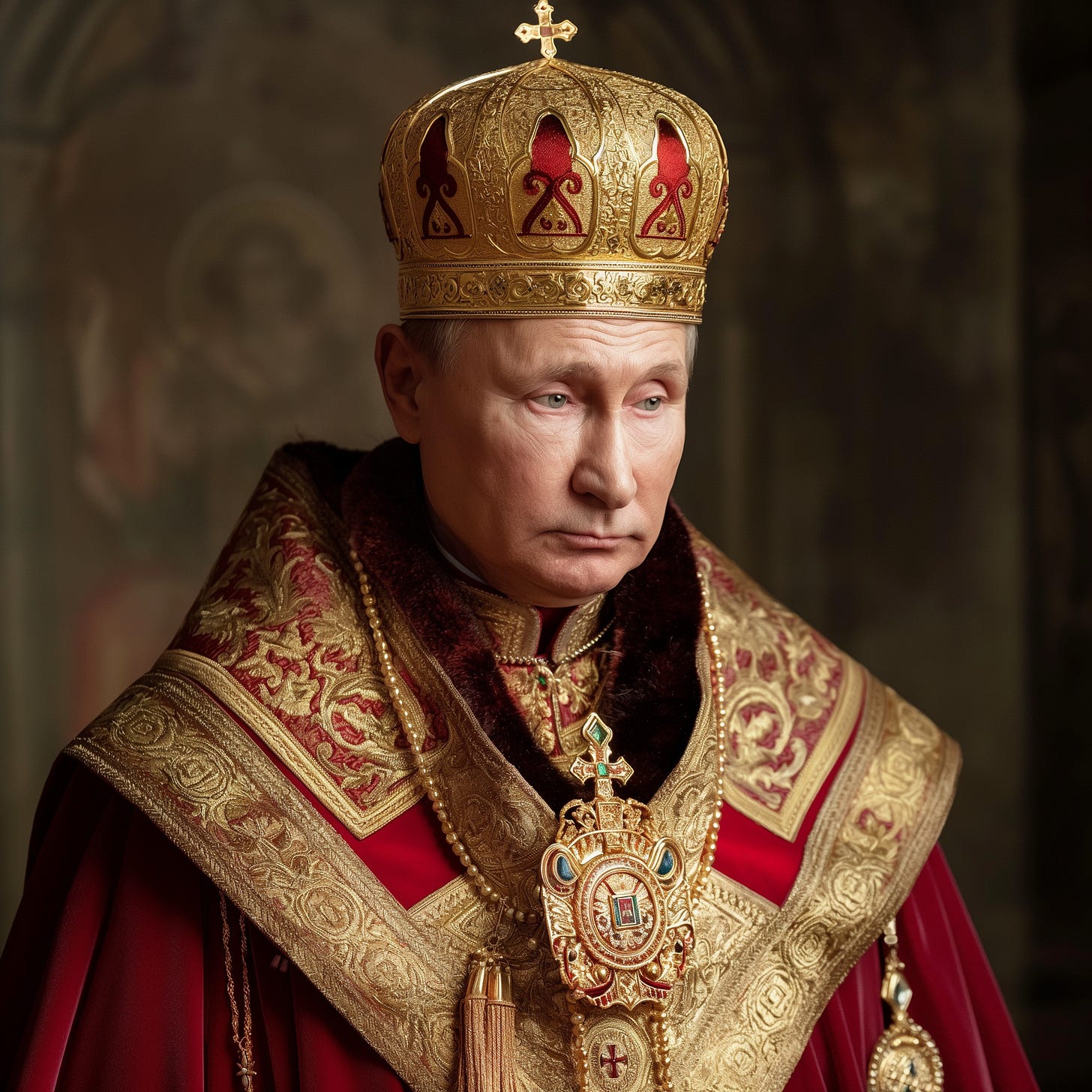
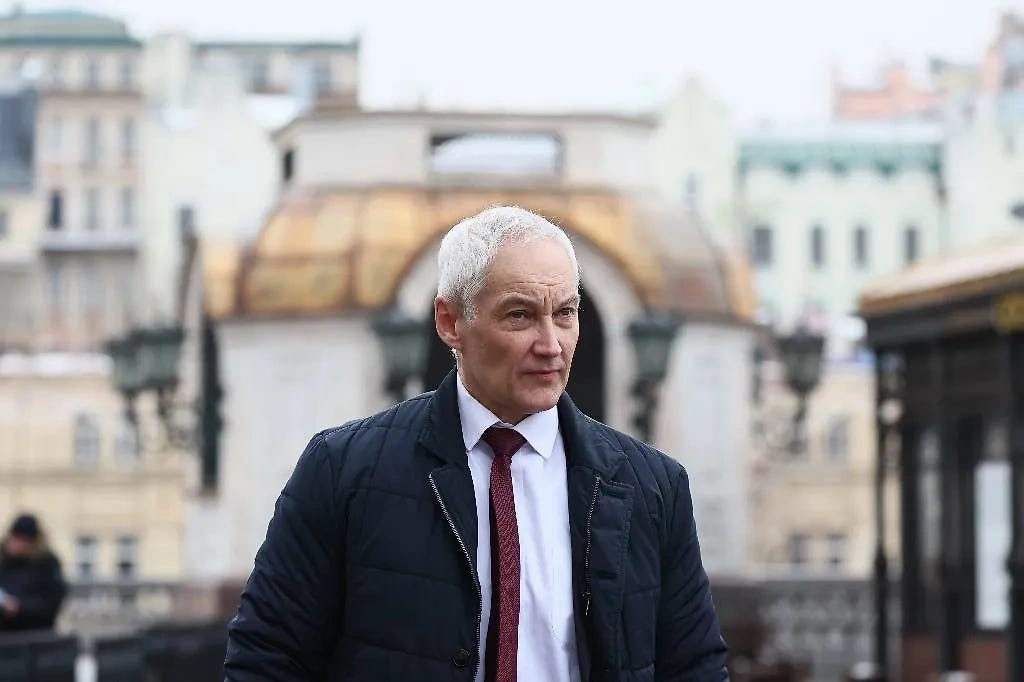
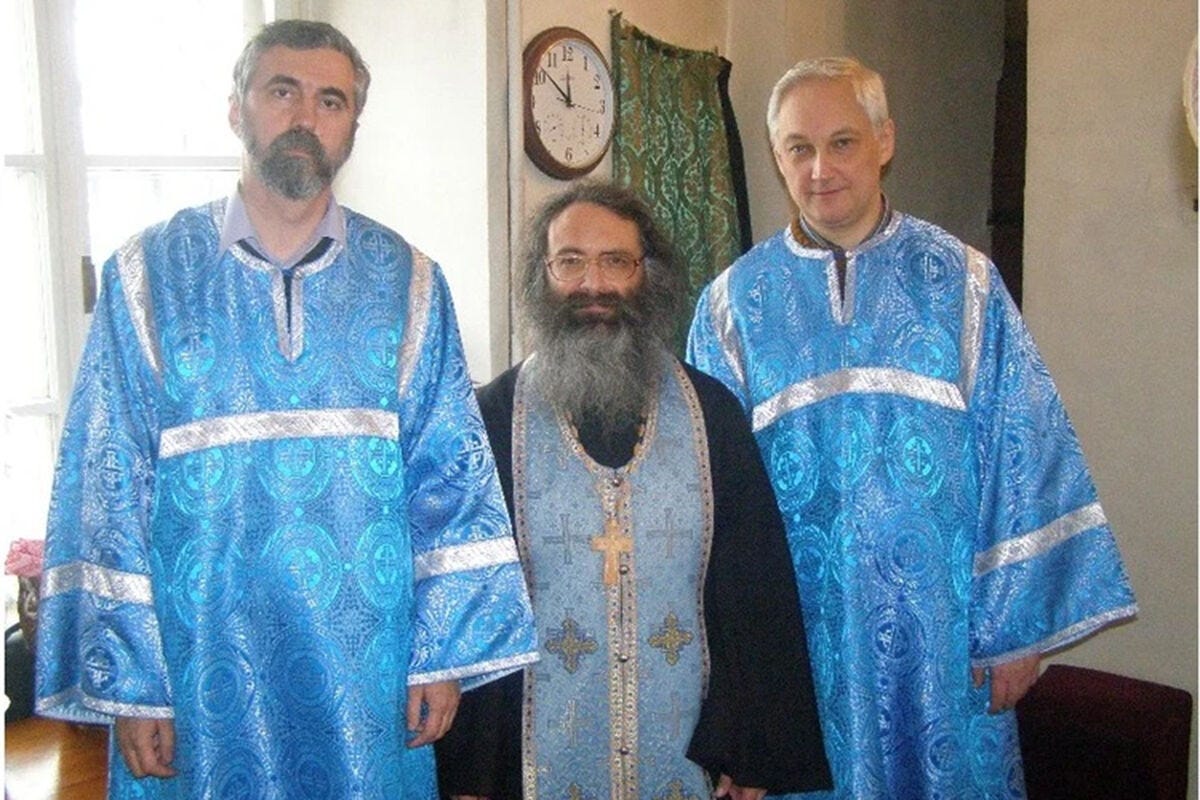
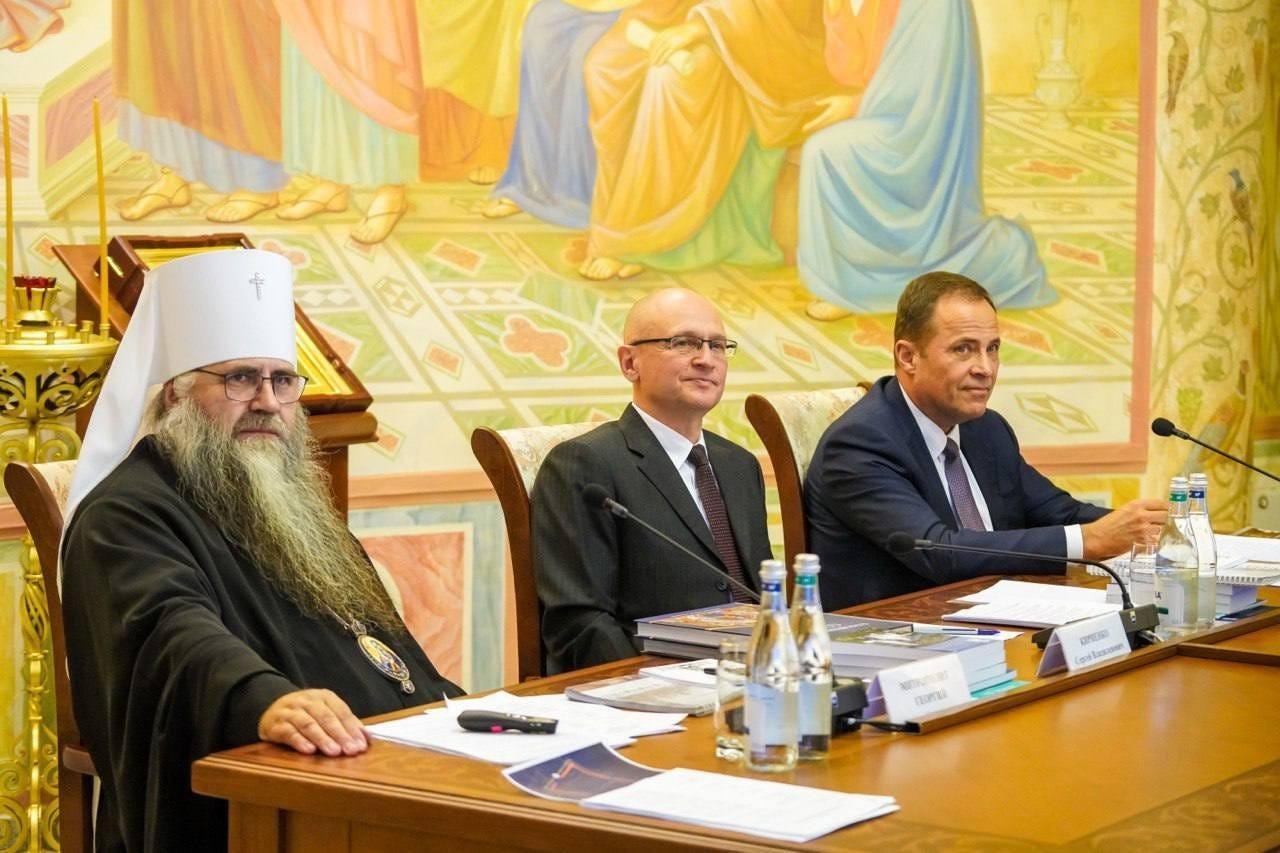
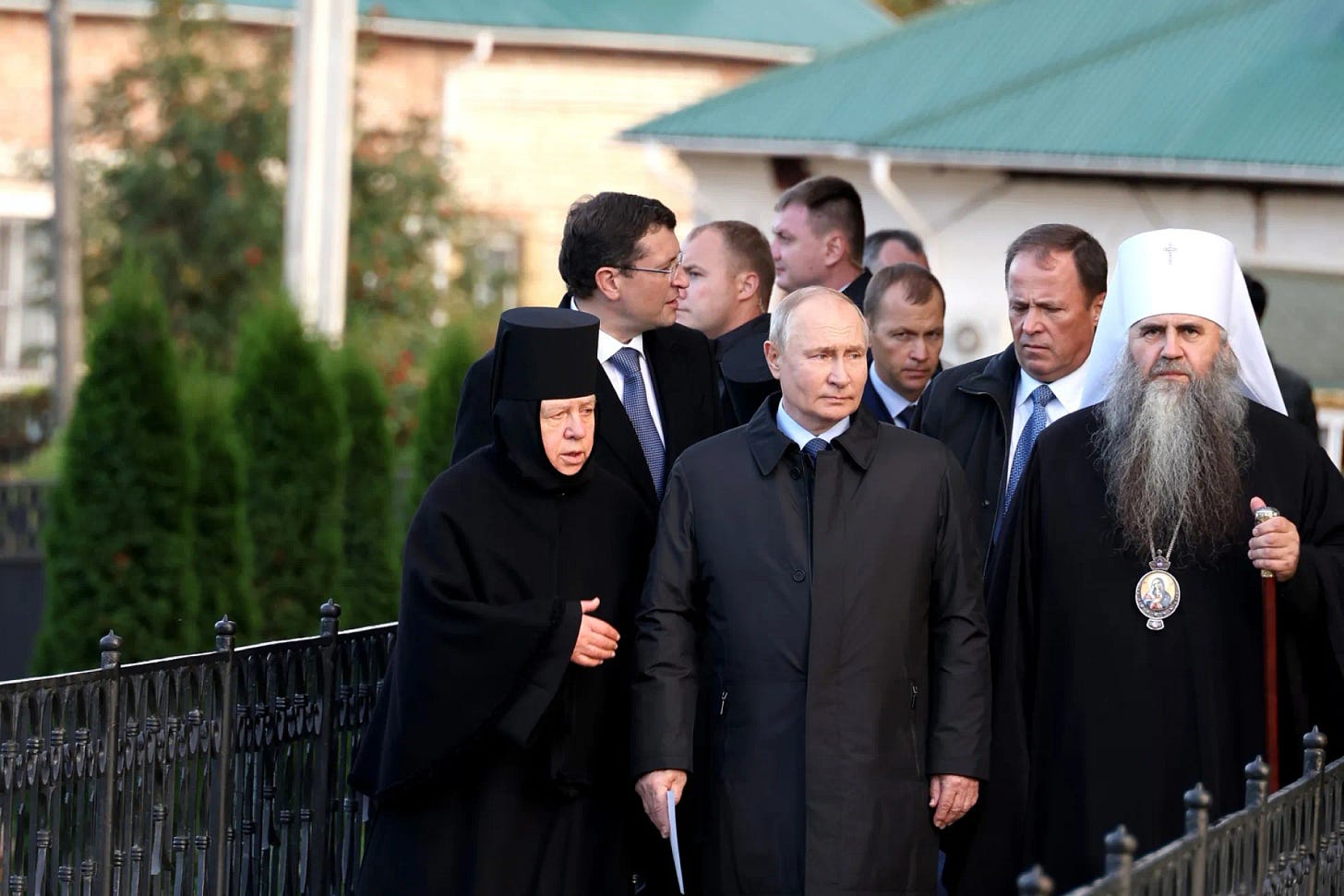
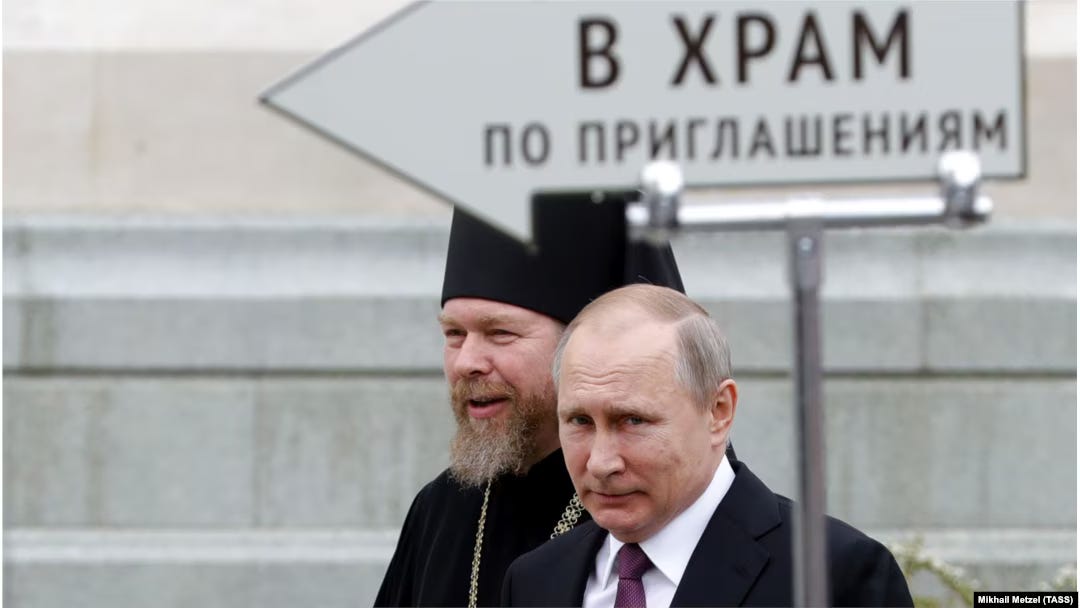
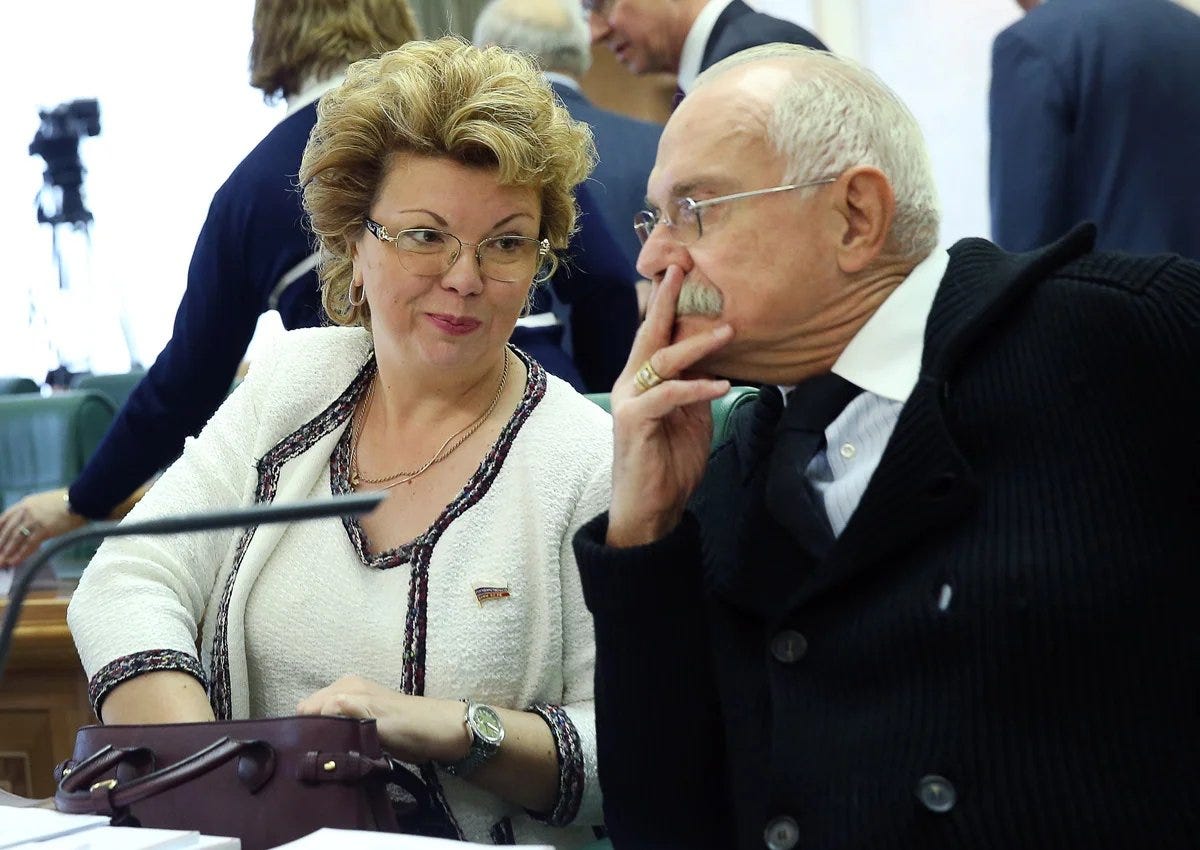
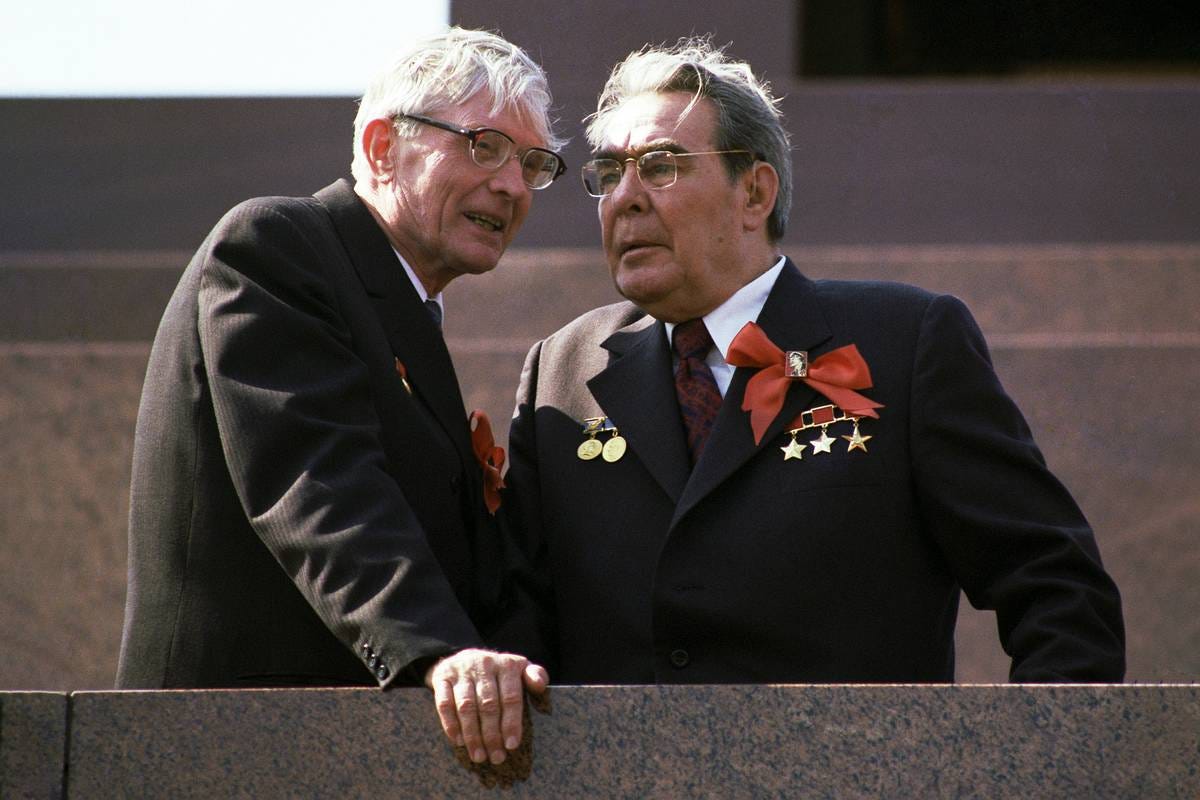
Brezhnev came to visit the United States in June, 1973. Here is an excerpt from Nixon's memoirs about "Town Car Diplomacy" and a hair-raising ride he had around Camp David as a passenger with none other than Brezhnev at the wheel. One of my more august assignments was to advise on putting up traffic signs around Camp David that Brezhnev and other Russian guests would understand. "Stop" signs were deemed particularly important. https://www.nixonfoundation.org/2013/06/town-car-diplomacy-40-years-ago/
So you believe that, say, Kirienko and Mishustin are true believers, and aren't just using their monastery affiliations to curry favor with Putin and as a way to build networks? That their faith actually informs their actions instead of being performative? Do you have maybe some insider corroborations that you are not at liberty to divulge?